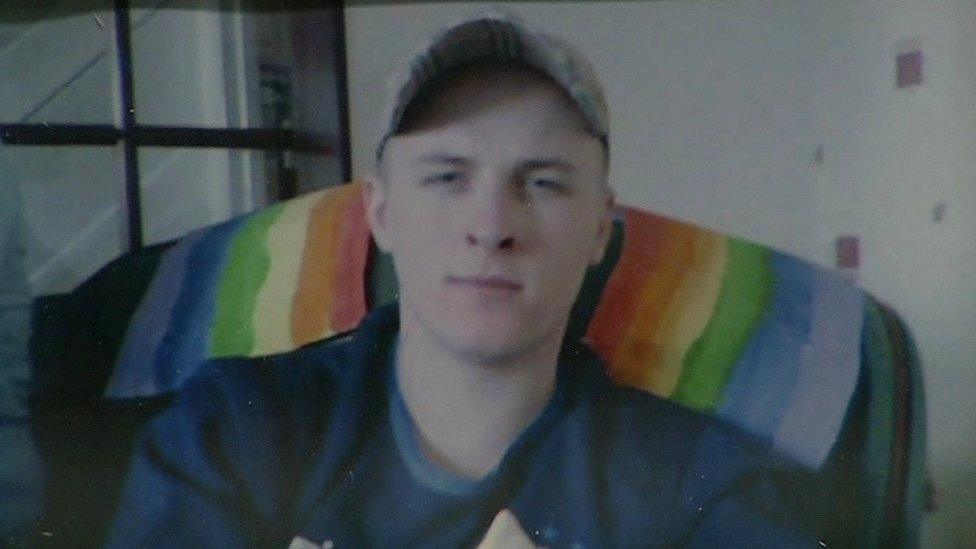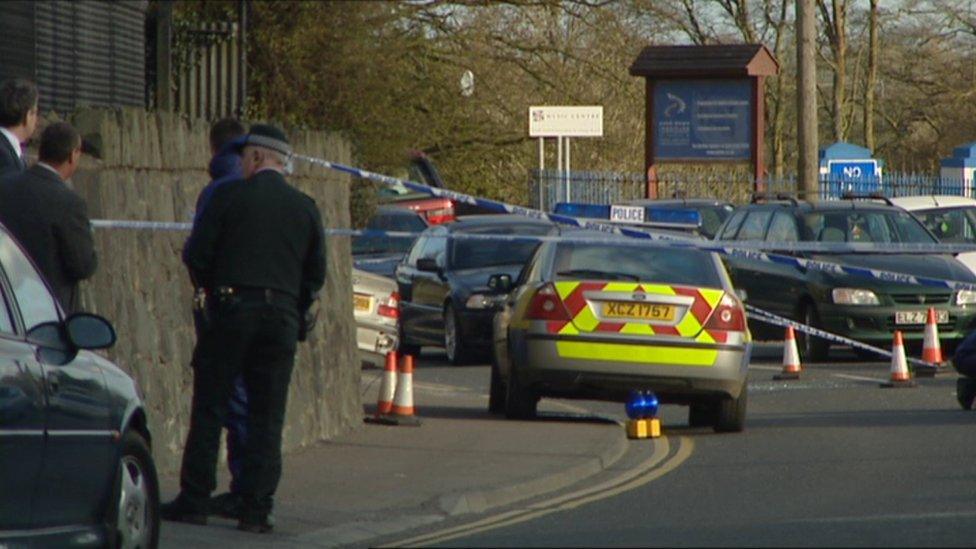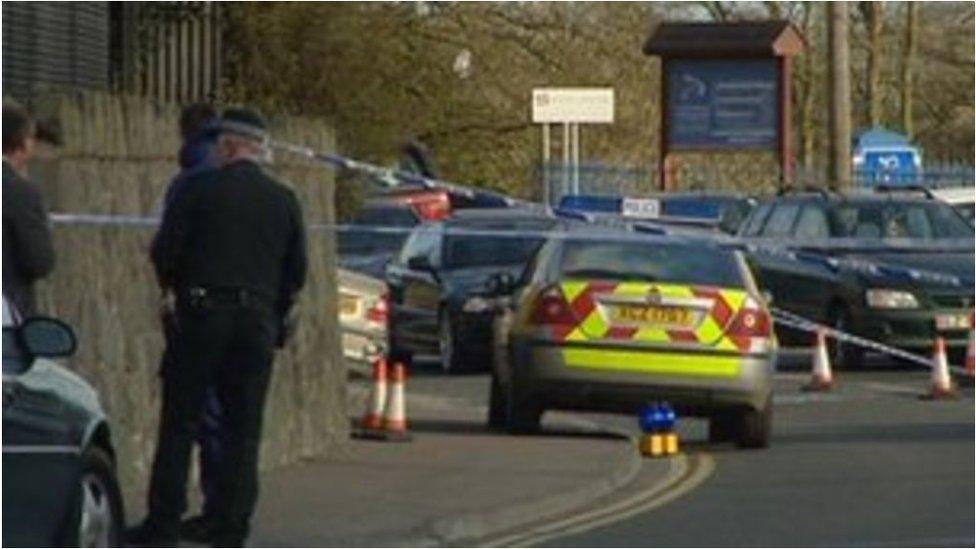Steven Colwell: Proportionate force used in shooting, coroner finds
- Published

Steven Colwell was shot dead by police in April 2006
A police officer who shot a man dead at a checkpoint in April 2006 used "proportionate" force, a coroner has found.
Steven Colwell, 23, originally from the Shankill area of Belfast, was killed at a PSNI checkpoint in Ballynahinch.
It had been set-up after the movements of a stolen BMW he had been driving were radioed in to police.
Mr Colwell was shot as he attempted to reverse the vehicle away from the PSNI checkpoint.
The officer, known as Officer O, previously claimed the car was driving straight towards him when he fired two shots.
The Office of the Police Ombudsman, which previously investigated Mr Colwell's death, found in 2011 that the officer's actions had been "critically flawed".
The watchdog added the officer's actions in discharging two shots had created significant risk of further casualties.
That 2011 finding was rejected by the Police Federation for Northern Ireland, which represents the interests of rank and file officers.
Force 'no more than absolutely necessary'
On Wednesday, the coroner Judge Rafferty said the officer responsible for firing the fatal shot honestly and genuinely believed his life was in danger, and his use of lethal force was "proportionate".
The judge added that the force used by the officer was "no more than was absolutely necessary".
However, he also added Officer O's belief that he did not have a realistic option for retreat from the vehicle as it moved towards him was a "mistaken belief", but one which was "reasonable" to make at that moment.

Mr Colwell was driving a stolen car when he was shot
The judge said the operation to stop the BMW was "not planned and controlled" in such a manner as to minimise risk to life, and that a 999 call made by a member of the public who was in a vehicle pursuing the stolen car had been "inappropriately handled".
He also found the PSNI failed to provide a satisfactory explanation that the risk to life was "minimised" in the overall police operation.
He added it was not possible to say on the balance of probabilities that a properly planned operation would have resulted in "events being avoided".
Speaking outside court after the findings, Mr Colwell's brother Neil said the family was "devastated".
"This is 18 years coming," he said.
"If the PSNI had of managed it a wee bit better, my brother might have been alive today."
Police watchdog 'starkly contradicted'
The Police Federation for Northern Ireland, which assisted Officer O "at every stage in this protracted process," welcomed the coroner's findings.
In a statement, PFNI Chair Liam Kelly expressed deep regret over the loss of life but said there was "quite rightly no criminal or misconduct outcome for the principal officer in this case".
Mr Kelly also noted that the coroner's findings were "in marked contrast" to the findings of the Police Ombudsman for Northern Ireland (PONI) when it investigated the case in 2011.
"Not for the first time has the findings of the Office of the PONI been so starkly contradicted in a court," he said.
"Clearly, there are further questions for the PONI as to how their investigators came to the original conclusions they did.
"The ombudsman should use this particular finding as an opportune time to reflect and take a long, hard look at how her office goes about its work," Mr Kelly added.
- Published26 March 2018

- Published22 September 2017

- Published4 September 2017
